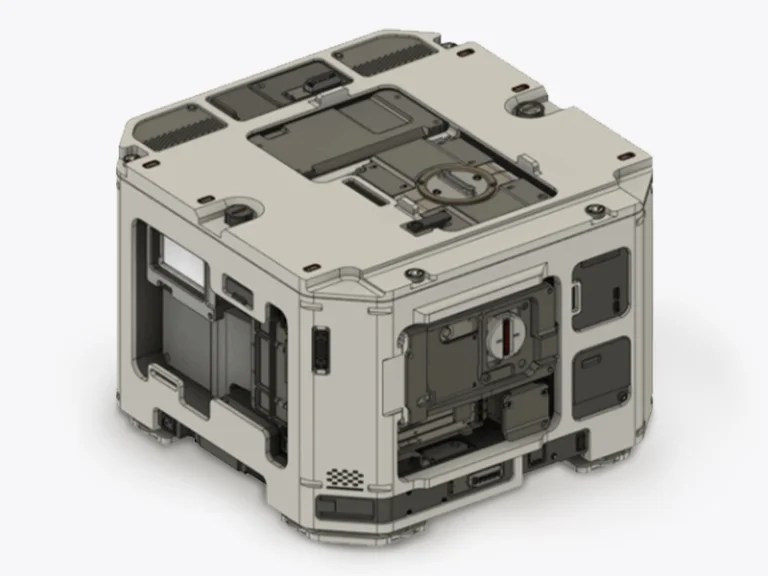Glossary
A
Additive Manufacturing:
The process of creating objects layer by layer using digital 3D models is commonly known as 3D printing.
B
Benchtop Press:
A compact, tabletop machine used in compression molding for smaller-scale production.
C
Casting:
The process of forming metal, plastic, or rubber objects by pouring liquid material into a mold and allowing it to solidify.
CNC Machining:
Computer Numerical Control machining is a precise manufacturing process that utilizes automated cutting tools controlled by a computer to create parts from various materials.
Contract Manufacturing:
Outsourcing the production of components or products to a third-party manufacturer.
D
Design for Manufacturability (DFM):
Designing a product with the manufacturing process in mind to optimize production efficiency, reduce costs, and improve overall manufacturability.
Die Casting:
A manufacturing process that involves forcing molten metal into a mold cavity to create complex metal parts.
E
Electronics Manufacturing Services (EMS):
Contract manufacturers that specialize in producing electronic components, assemblies, and products for original equipment manufacturers (OEMs).
G
Glass Fiber:
A reinforcing material often added to plastic resins to enhance strength and durability.
H
Heatless Compression Molding Machines:
Compression molding machines that operate without external heat sources, relying on the heat generated during the compression process.
I
Insert Molding:
A molding process where a pre-formed component is placed into the mold, and molten material is injected around it.
J
Jig Design:
The creation of specialized devices or tools (jigs) to facilitate and guide the manufacturing process, often used in conjunction with CNC machining or assembly.
K
Kitting:
The process of grouping and packaging together various components needed for assembly.
L
Lean Manufacturing:
A production philosophy focused on minimizing waste, optimizing efficiency, and continuously improving processes to enhance overall productivity and value for the customer.
M
Metal Injection Molding (MIM):
A manufacturing process that combines metal powder with a binding agent to create complex metal parts.
O
Overmolding:
A process where one material is molded over another, typically combining plastic and rubber.
P
Precision Machining:
The manufacturing process that produces highly accurate parts through subtractive methods like milling, turning, or grinding.
Prototyping:
The creation of a preliminary model or sample of a product to test and evaluate design concepts before full-scale production.
Plastic Injection Molding:
A manufacturing process where molten plastic is injected into a mold cavity to create plastic parts.
R
Rapid Prototyping:
Quickly creating a physical model of a product using 3D printing or other rapid manufacturing methods.
S
Supply Chain Management:
The oversight and optimization of the entire process of sourcing, producing, and delivering products to end-users, ensuring an efficient and cost-effective flow of materials and information.
Silicone Molding:
A molding process using silicone rubber to create flexible and durable parts.
T
Thermoplastic-Elastomer (TPE):
A class of polymers combining characteristics of thermoplastics and elastomers, known for flexibility and resilience.
Tooling:
The process of designing and creating molds, dies, or other tools required for manufacturing processes like injection molding or stamping.
Turnkey Manufacturing:
A comprehensive service where the contract manufacturer manages the entire production process, from design to delivery, offering a complete, ready-to-use solution to the client.
U
Urethane Casting:
A casting process using urethane resin to produce prototypes and low-volume production parts.
V
Vertical Integration:
The strategy of controlling multiple stages of the production process, from raw material procurement to final product assembly, to enhance efficiency and quality control.
Vacuum Casting:
A molding process that uses a vacuum to draw liquid material into a mold cavity, often used for creating prototypes.
W
Wet Compression Molding Machines:
Compression molding machines that use liquid compression medium, such as oil or water, during the molding process.
X
XYZ Axis:
The three axes (X, Y, and Z) in a coordinate system used to describe the spatial position of points in three-dimensional space.

